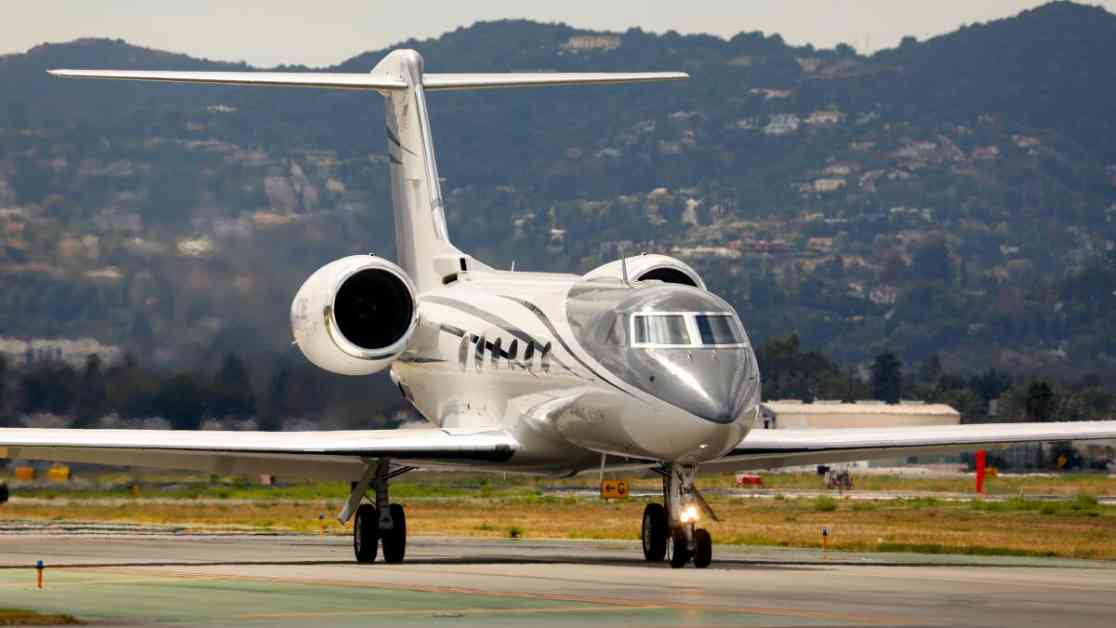Carbon dioxide emissions from private jets have been on the rise, increasing by 46% in the last five years. A recent study published in the journal Nature Communications Earth & Environment highlighted this concerning trend. Researchers analyzed data from over 26,000 airplanes and 18 million trips, with the majority of private jets being based in the U.S.
One of the key findings of the study was that 291 flights were headed to the 2023 COP28 climate conference, collectively releasing 3,800 tons of carbon dioxide. This raised concerns about the environmental impact of private jet travel, especially in the context of global efforts to reduce greenhouse gas emissions.
While the Federal Aviation Administration had previously developed tracking technology for private jets, allowing researchers to monitor their movements, recent changes have allowed aircraft operators to obscure their ID. This could pose challenges for future studies on private jet emissions and make it harder to hold accountable those contributing to the problem.
The study authors emphasized the need for increased regulation in the aviation industry to curb emissions from private jets. With the U.S. setting a goal to achieve net-zero greenhouse gas emissions in aviation by 2050, there is a growing urgency to address the environmental impact of private jet travel.
However, it’s essential to note that while private jets contribute to carbon dioxide emissions, they make up only a fraction of total greenhouse gas emissions globally. Researcher Christopher Jones pointed out that the issue is more about wealth inequality and moral concerns rather than a significant contributor to climate change.
The study also highlighted the challenges of transitioning away from carbon-based fuels in aviation. Developing sustainable airplane technology, improving air traffic management, and investing in carbon capture technology are some of the proposed solutions to reduce emissions from private jets and other aircraft.
In recent years, private jet owners and passengers have faced increasing scrutiny for their environmental impact. The visibility of private jet travel, especially among the ultra-wealthy, has led to public backlash and calls for accountability.
Efforts to track private jet movements and emissions have faced pushback from aircraft operators seeking to protect their privacy. While privacy concerns are valid, transparency and accountability in the aviation industry are crucial for addressing the environmental challenges posed by private jet travel.
As discussions around sustainability and climate change continue to evolve, it is essential to consider the role of private jets in contributing to greenhouse gas emissions. Balancing the convenience of private air travel with environmental responsibility will be key in shaping a more sustainable future for the aviation industry.



























